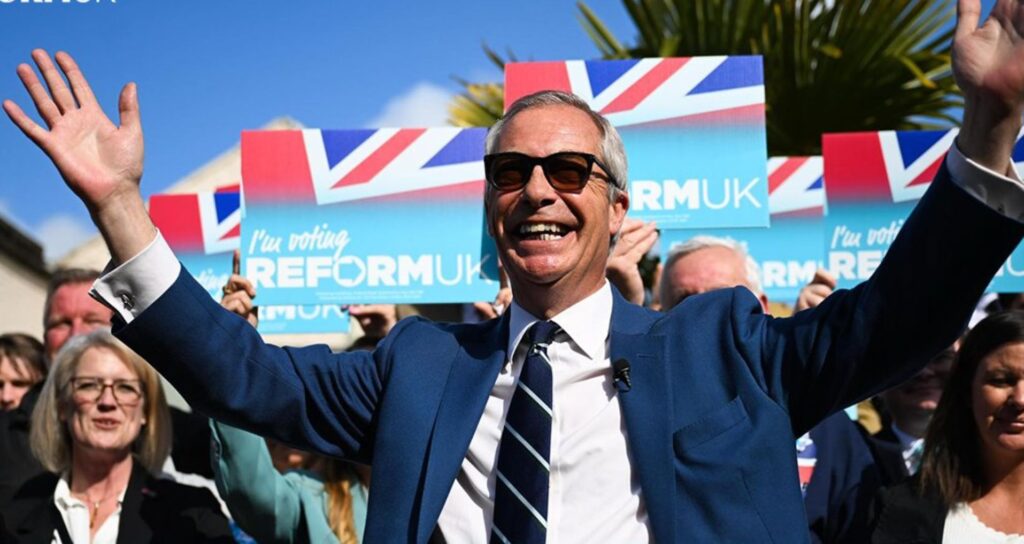If an ordinary week is a long time in politics, the last fortnight must have felt like a lifetime for the Chancellor Rachel Reeves.
The Spring Statement seemed like a pretty big deal at the time, but it was very quickly overshadowed by US President Trump’s ‘Liberation Day’ which triggered widespread economic tumult through the commencement of a global trade war.
Caught in the economic headwinds of slowing growth and rising borrowing costs Reeves was already facing the evaporation of the fiscal headroom she had set aside when she reworked her fiscal rules in Autumn Budget.
When combined with Starmer’s insistence that UK defence spending needed to increase in response to President Trump’s upending of the transatlantic security alliance, something had to give.
Goodbye Spring Statement?
Reeves had intended to end the UK’s odd practice of having two large scale fiscal events every year.
The Spring Statement would be little more than an update on the nation’s finances – without the need for significant changes to tax and spending.
While it wasn’t quite the emergency budget of the Opposition’s imagination, it was a fiscal event and one that created as many problems as it solved.
The big problem that Reeves faces is that through a combination of her self-imposed fiscal rules and what looks like a dogmatic zero-sum approach to public finances, where every pound of additional expenditure is offset by a reduction elsewhere, it is impossible to fix problems without creating more.
For a country like the UK, finding an additional £2.2 billion of expenditure should be relatively straight forward – we’re talking less than a quarter of one percent of total expenditure – not an existential crisis.
Yet the conclusion reached by the Chancellor was that the books could only be balanced by cutting the UK’s international aid budget.
That might play well in certain parts of the media and wider electorate, but it is catnip to a lot of Labour MPs and their voters.
Even more controversial were reforms to welfare support for those with disabilities announced in the run up to the Spring Statement
A £5 billion package of measures caused widespread moral and political anguish among Labour MPs that required a heavy dose of party management to avoid a full scale rebelling.
Days later the Government announced a further £500 million of cuts to disability payments because the Office for Budget Responsibility (OBR) scored the measures at £4.5 billion.
Any cash down the back of the sofa?
£500 million is a lot of money – unless you spend a million million pounds annually as the UK Government does.
Over the five-year lifespan of the forecasts, that’s a rounding error that could have been managed without further cuts needing to be announced.
I don’t think I will ever forget a phone-call I received late one Friday night from a finance official when I was the First Minister’s Special Adviser leading on the Scottish budget.
The Scottish Fiscal Commission (the devolved equivalent of the OBR) had produced its final tax forecasts for the Budget that was due to be announced to Parliament in less than two weeks.
Those forecasts had revised expected tax receipts down by a little over £300 million.
The only option on the table was to cut departmental allocations that had already been agreed by cabinet.
Except, by Monday the problem was sorted, virtually pain free, with everyone bar a small number of politicians, civil servants and advisers none the wiser.
Because that’s what happens in Budgets, the numbers move until they stop moving.
The day after you publish, they start moving again.
Any decent finance official – and I’ve worked with a lot of them over the years – knows where to get their hands on some cash in an emergency.
That’s a big part of their job.
Finances need to stack up politically, as well as mathematically
If the Scottish Government can find £300 million out of a budget of roughly £30 billion at the time, it simply defies belief that the UK Government could not find a similar sum out of a budget many times greater.
Of course, budgets need to balance. But they also need to be balanced.
Your numbers need to stack up in a financial sense, but they also need to add up politically.
If politics overrides finance, your budget will be in trouble pretty quickly –just ask Liz Truss and Kwasi Kwarteng
But if political considerations are sacrificed on the high altar of finance that will bring its own problems.
When looking at the Reeves’ handling of her first two fiscal events the political side of the equation seems to have been ignored.
There has been a dogged determination to stick to fiscal rules even it means grabbing the third rail of Labour party politics by cutting international aid and disability benefits.
It is not unreasonable for the Chancellor of the Exchequer to want to keep the bond markets happy – failure to do that will guarantee a sharp exit from 11 Downing Street.
But you also need to keep enough of your Cabinet colleagues happy and at very least avoid all out rebellion from the backbenches.
It is not clear that Reeves has managed either of those things in her first nine months as Chancellor.
Upended forecasts
Fiscal rules that require a tightly defined target to be met five years into the future would be challenging in benign economic circumstances – doubly so when you decide you need to be judged to have met them twice a year instead of once.
Three weeks out, the economic assumptions underpinning the forecasts have been utterly upended and who knows where we will be by the time of the next budget.
But now the precedent has been set.
Come Autumn, if there has not been a miraculous turnaround in the economy she will have to cut spending even further, raise substantially more in tax, or perhaps even both.
That risks creating an economic and political doom loop that will be hard for the Government to escape.
And if that does come to pass – Starmer may conclude that the only way he can escape is with a new Chancellor of the Exchequer.
Main image: Chancellor Rachel Reeves leaves No 11 Downing Street to deliver her Spring Statement. Picture by Alecsandra Dragoi / Treasury



